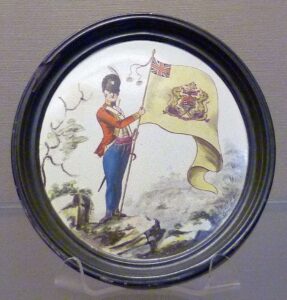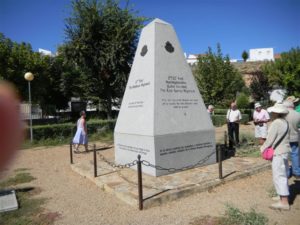To set the scene: 206 years ago today, on 28th February, 1815, the ex-emperor of the French, Napoleon Bonaparte, having escaped from exile on the Island of Elba, landed in France and immediately set about reclaiming his throne. His luck was to hold for 100 days. By the beginning of June he had raised 200,000 men, more than enough to match the combined armies of the Britain and her Allies. On 18th June, 1815 he would face his enemies at Waterloo.
 ‘British Voluntary Infantry raised 1797’, earthenware plaque, Bristol Water Lane Pottery c. 1801.
‘British Voluntary Infantry raised 1797’, earthenware plaque, Bristol Water Lane Pottery c. 1801.
Continue reading Souvenir Mugs and Jugs from the Napoleonic Wars
Please share this page...

